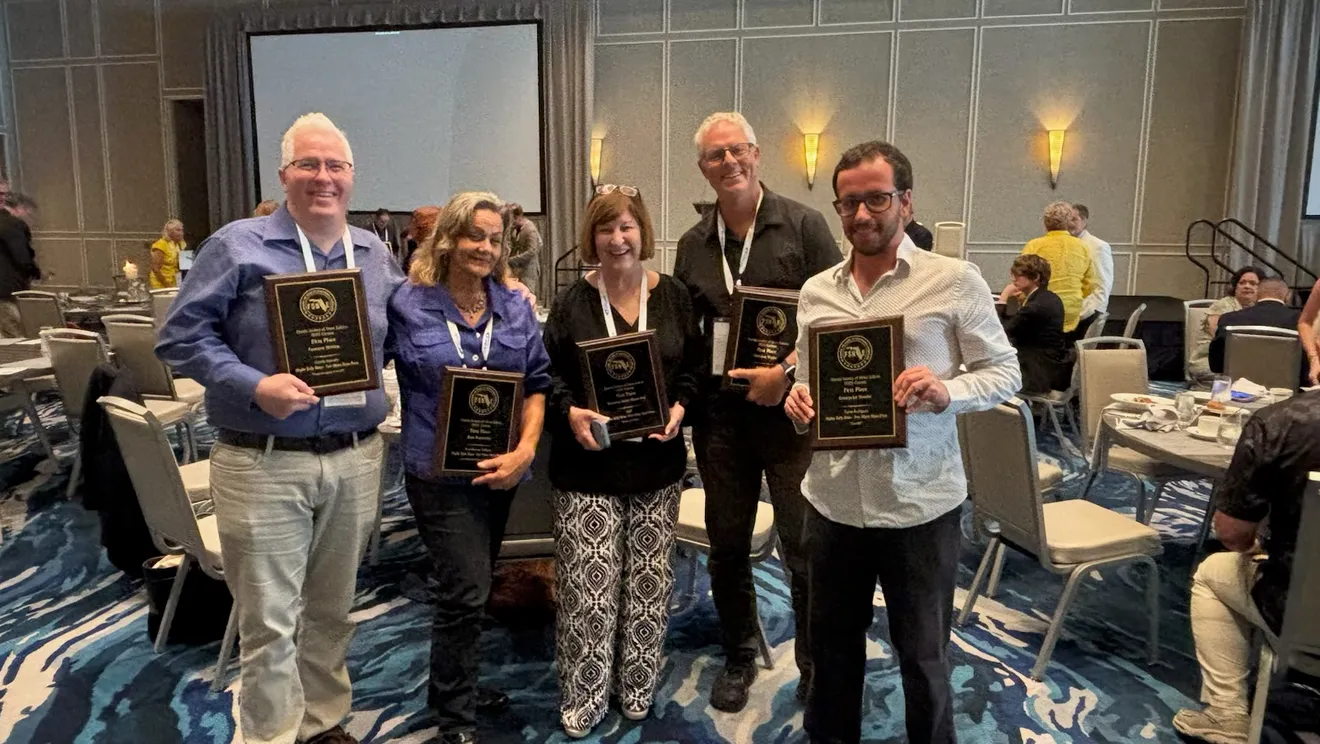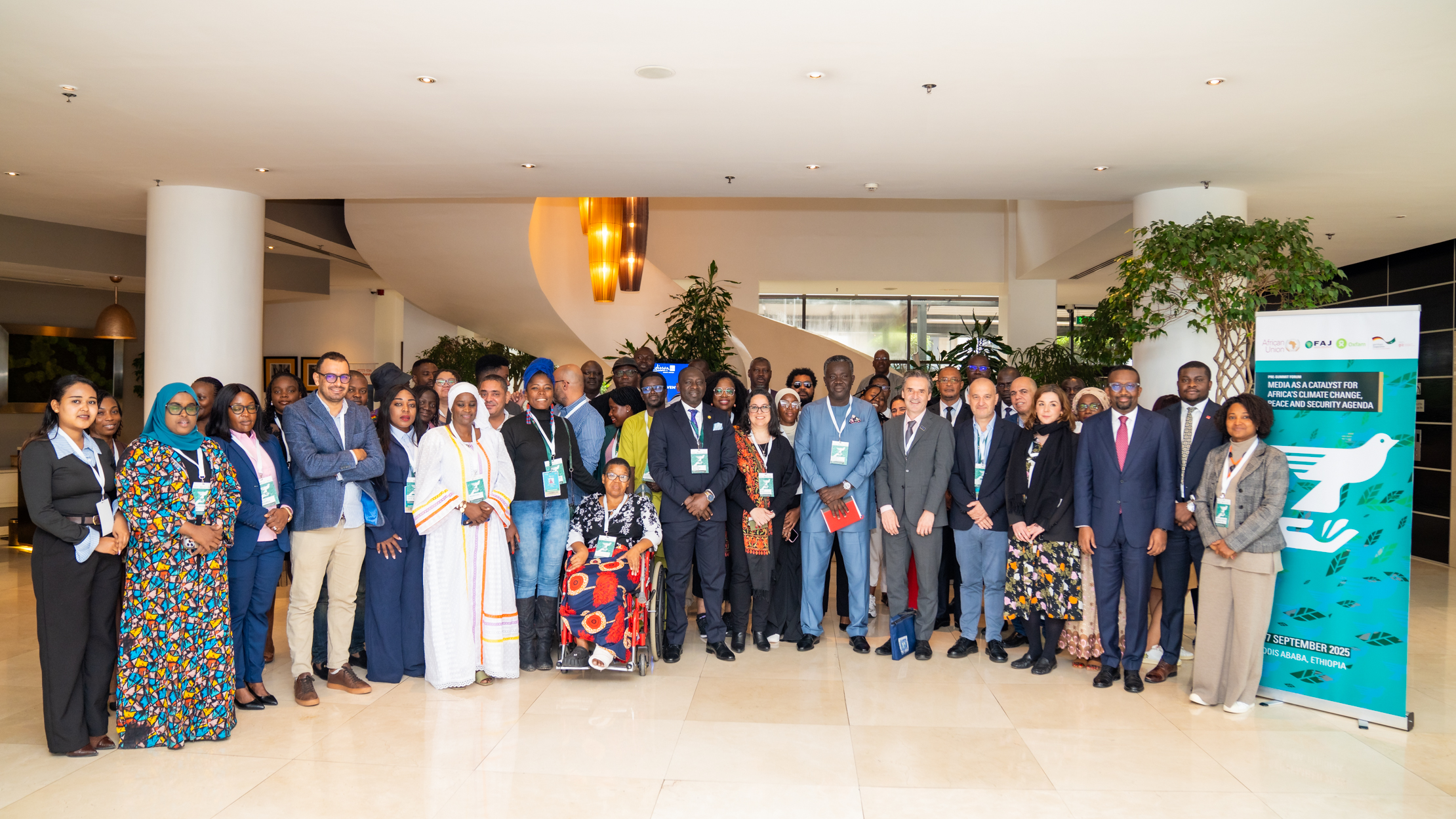
Naples Journalists Celebrate Awards While Deepening Community Trust
September 7, 2025
Promoting Island Tourism: German Journalists Visit Thassos, Cypriots Tour Lesvos
September 8, 2025The International Federation of Journalists (IFJ), in support of its pan-African arm — the Federation of African Journalists (FAJ) — helped co-convene a pre-summit forum on 6–7 September 2025 in Addis Ababa, ahead of the Second Africa Climate Summit. Organized alongside the African Union Commission’s Department of Political Affairs, Peace and Security (PAPS), and in partnership with GIZ and Oxfam, the event focused on the media’s critical role in advancing Africa’s climate security and just transition agenda. More than 60 journalists, policymakers, and civil society representatives participated.
Under the theme “Media as a Catalyst for Africa’s Climate Change, Peace and Security Agenda: Driving Just Transition and Climate Justice”, the forum mirrored the summit’s priorities — including climate mobility, adaptation, resilience, early warning systems, and transparent climate finance. A central message underscored that trusted journalism and combating disinformation are essential to maintaining public safety and social cohesion, especially in fragile contexts where climate pressures intersect with conflict.
Keynote speaker Dr. Richard Muyungi, Chair of the African Group of Negotiators on Climate Change, affirmed: “Journalists are central to this effort. When information is trusted and timely, it can reduce tensions, guide early action, and support fair policies.” FAJ President Omar Faruk Osman added that journalists, often operating at personal risk, must be empowered with safety and resources so they can challenge harmful narratives and support peace, security, and climate justice efforts.
IFJ General Secretary Anthony Bellanger praised media freedom and public-interest reporting, urging that adaptation and just transition policies must include, not exclude, vulnerable communities. He emphasized that African journalists and their unions have a vital role in driving inclusive and accountable climate action.
Reference –

